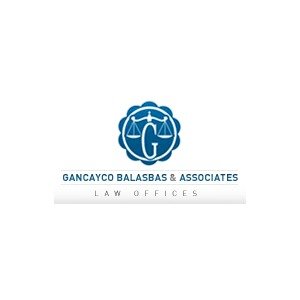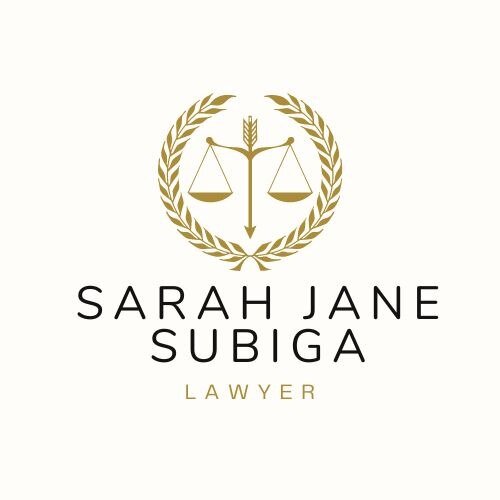Best Bankruptcy & Debt Lawyers in Manila
Share your needs with us, get contacted by law firms.
Free. Takes 2 min.
List of the best lawyers in Manila, Philippines
Philippines Bankruptcy & Debt Legal Questions answered by Lawyers
Browse our 5 legal questions about Bankruptcy & Debt in Philippines and read the lawyer answers, or ask your own questions for free.
- International debt
- What can I do if a third party agency is contacting me regarding my debt which I left in Dubai 7 yrs ago
-
Lawyer answer by Recososa Law Firm
Hello: Presuming this matter is within Philippine jurisdiction, here is the clear picture of how debts from Dubai are handled when someone is now living in the Philippines. Since you did not leave your name, I will just address you...
Read full answer - Paano ko po mapapatigil yung naniningil sakin na lending apps
- Nangutana po ako sa MOCAMOCA apps,at sobrang taas po ng interest everyday tumutubo po sila kapag nadedelay magbayad may harrassment text and calls na po sila sakin nahihirapan na po ako magbayad dahil lumalaki na sya at may mga banta pa po sila.sana matulungan nyo ako hirap na hirap na... Read more →
-
Lawyer answer by Recososa Law Firm
Hello: Kung totoo man ang sitwasyon mo na may harassment, pananakot, o sobra-sobrang interes mula sa lending apps gaya ng MOCAMOCA, maaari nating tugunan ito sa ilalim ng Philippine law. Marami na ngayong reklamo laban sa mga online lending apps...
Read full answer - How much will be the cost for filing a bankruptcy
- I am an individual who is trying to file a bankruptcy to pay my debt on my Online Lending Applications.
-
Lawyer answer by Recososa Law Firm
Hello: Filing for bankruptcy in the Philippines is a legal process governed mainly by the Financial Rehabilitation and Insolvency Act (FRIA) of 2010 or Republic Act No. 10142. This law allows individuals or corporations who are unable to pay their...
Read full answer
About Bankruptcy & Debt Law in Manila, Philippines
Bankruptcy & Debt law in Manila, Philippines deals with the legal processes and regulations surrounding financial struggles, unpaid debts, and insolvency. It provides individuals and businesses with options to manage their debts and seek relief from financial burdens.
Why You May Need a Lawyer
While it is not mandatory to hire a lawyer for Bankruptcy & Debt cases, having legal assistance can be beneficial in several situations:
- If you are unsure about the legal procedures and requirements related to filing for bankruptcy.
- If you need to negotiate with creditors to modify repayment terms.
- If you want to protect your assets from potential foreclosure or seizure.
- If you are facing a lawsuit due to unpaid debts.
- If you need guidance on the best bankruptcy option for your specific situation.
Local Laws Overview
Bankruptcy & Debt laws in Manila, Philippines are primarily governed by Republic Act No. 10142, also known as the Financial Rehabilitation and Insolvency Act (FRIA) of 2010. Here are some key aspects of the local laws:
- The FRIA provides several bankruptcy options for individuals and businesses, including voluntary and involuntary liquidation, pre-negotiated rehabilitation, and financial reorganization.
- Debtors can propose a rehabilitation plan that, when approved by a court, allows them to restructure and pay debts over a reasonable period, usually not exceeding seven years.
- The law also establishes the Securities and Exchange Commission (SEC) as the main overseeing body for bankruptcy cases.
Frequently Asked Questions
Q: What are the types of bankruptcy for individuals in Manila, Philippines?
A: Individuals in Manila, Philippines have two primary bankruptcy options: liquidation (Chapter 7) and reorganization (Chapter 13). Liquidation involves the sale of non-exempt assets to repay debts, while reorganization allows individuals to create a repayment plan to settle their debts over time.
Q: Can filing for bankruptcy in Manila, Philippines eliminate all types of debt?
A: No, certain debts cannot be discharged through bankruptcy, such as student loans, child support, alimony, and some tax debts. However, bankruptcy can still provide relief from many other types of debt.
Q: Will bankruptcy in Manila, Philippines stop creditors from harassing me?
A: Yes, once you file for bankruptcy, an automatic stay is imposed, which prevents most creditors from continuing debt collection activities. This includes phone calls, letters, wage garnishment, and lawsuits.
Q: How long does bankruptcy stay on my credit report in Manila, Philippines?
A: Bankruptcy can remain on your credit report for up to seven years for Chapter 13 bankruptcy and up to ten years for Chapter 7 bankruptcy. However, you can start rebuilding your credit immediately after the process.
Q: Can I file for bankruptcy without a lawyer in Manila, Philippines?
A: Yes, it is possible to file for bankruptcy without a lawyer in Manila, Philippines. However, it is highly recommended to consult with a lawyer to ensure you understand your rights, navigate the legal process correctly, and make informed decisions.
Additional Resources
Here are some resources that can provide further assistance and information regarding Bankruptcy & Debt in Manila, Philippines:
- Securities and Exchange Commission (SEC) - The primary governing body for bankruptcy cases in Manila, Philippines. Visit their website at https://www.sec.gov.ph for detailed information on bankruptcy laws and regulations.
- Integrated Bar of the Philippines (IBP) - The national organization of lawyers. IBP can help you find competent bankruptcy lawyers in Manila. Check their website at https://www.ibp.ph for lawyer referrals and assistance.
Next Steps
If you require legal assistance in Bankruptcy & Debt in Manila, Philippines, it is recommended to take the following steps:
- Evaluate your financial situation and determine if bankruptcy is the right choice for you.
- Consult with a bankruptcy lawyer to understand the process, your options, and the potential outcomes.
- Work closely with your lawyer to gather all necessary documentation and information for the bankruptcy filing.
- Follow the legal proceedings guided by your lawyer, attend court hearings if required, and adhere to the court-approved repayment plan, if applicable.
- Consider financial counseling or debt management programs to help you rebuild your credit and manage your finances effectively following bankruptcy.
Lawzana helps you find the best lawyers and law firms in Manila through a curated and pre-screened list of qualified legal professionals. Our platform offers rankings and detailed profiles of attorneys and law firms, allowing you to compare based on practice areas, including Bankruptcy & Debt, experience, and client feedback.
Each profile includes a description of the firm's areas of practice, client reviews, team members and partners, year of establishment, spoken languages, office locations, contact information, social media presence, and any published articles or resources. Most firms on our platform speak English and are experienced in both local and international legal matters.
Get a quote from top-rated law firms in Manila, Philippines — quickly, securely, and without unnecessary hassle.
Disclaimer:
The information provided on this page is for general informational purposes only and does not constitute legal advice. While we strive to ensure the accuracy and relevance of the content, legal information may change over time, and interpretations of the law can vary. You should always consult with a qualified legal professional for advice specific to your situation.
We disclaim all liability for actions taken or not taken based on the content of this page. If you believe any information is incorrect or outdated, please contact us, and we will review and update it where appropriate.
Browse bankruptcy & debt law firms by service in Manila, Philippines
Manila, Philippines Attorneys in related practice areas.











